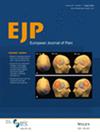Cognitive and Personality Profiles of Patients With Chronic Trigeminal Neuralgia
Abstract
Background
Patients suffering from chronic pain are known to exhibit distinctive personality traits and impaired neuropsychological performance across various cognitive domains. However, there is currently a lack of comprehensive evidence regarding cognitive and behavioural functioning patterns in patients with trigeminal neuralgia.
Methods
In this study, we aimed to thoroughly characterise a range of psychological and neuropsychological variables in a sample of 73 patients and 34 healthy controls, and to assess their relationship with pain intensity and duration.
Results
Our findings revealed that patients with trigeminal pain scored significantly higher on measures of anxiety, depression, perceived stress, alexithymia, pain catastrophizing, harm avoidance and lower on the Self-transcendence subscale compared to healthy controls. Additionally, these patients demonstrated lower performance scores on tasks assessing working memory and verbal fluency. The regression model with Rey complex figure copy, backward digit span and perceived stress scores taken as predictors accounted for 32% of the pain intensity variance.
Conclusions
These findings may provide valuable insights for the development of personalised treatment plans for patients with trigeminal neuralgia, specifically targeting their unique personality traits and cognitive impairments.
Significance
Our work expands the current understanding of cognitive deficits and personality traits in patients with chronic facial pain. Furthermore, this study provides additional evidence that psychological and neuropsychological factors significantly contribute to the patients' perception of pain.

 求助内容:
求助内容: 应助结果提醒方式:
应助结果提醒方式:


